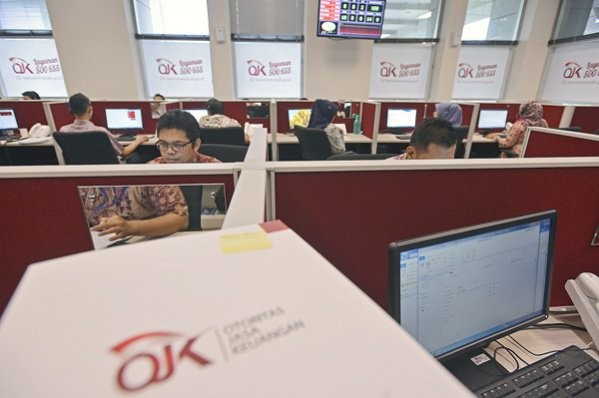Popular Reads
Top Results
Can't find what you're looking for?
View all search resultsPopular Reads
Top Results
Can't find what you're looking for?
View all search resultsEDITORIAL: Financial supervisors' tasks
The latest Financial System Stability Assessment on Indonesia by the International Monetary Fund and the World Bank, completed last month, commended the government for the significant progress in the reform of financial sector resilience.
Change text size
Gift Premium Articles
to Anyone
T
he latest Financial System Stability Assessment on Indonesia by the International Monetary Fund and the World Bank, completed last month, commended the government for the significant progress in the reform of financial sector resilience. The assessment also concluded that systemic risk was low and the banking system appears generally resilient, even to severe shocks.
However, both multilateral bodies also suggested further clarifications of the institutional responsibilities for the Financial Services Authority (OJK) and Bank Indonesia (BI) and stronger legal protection for staff involved in supervision and crisis management.
The assessment report lists many short-term and medium-term recommendations for the new OJK commissioners, and suggests they need to break the silos in the OJK internal and governance structure because supervision is still effectively undertaken separately for banks, non-bank financial institutions and securities by three different commissioners.
The OJK was set up in 2011 as the single integrated supervision agency for all financial service companies after the 2008 global financial crisis. Scandals that have hit large Indonesian state and private banks over the last few years showed how separate supervisory institutions are no longer effective to detect and prevent banking and financial crimes, which have become increasingly sophisticated and involve multiple transactions across different financial service companies.
The assessment report, though commending progress made since 2014 to fully integrated supervision, strongly recommends that the OJK strengthen its supervisory staff, especially since one third of its bank supervisors last year opted to return to BI. Also urgent is the need to reduce what the assessment team sees as an overlap in supervision activities among the OJK, BI and the Deposit Insurance Corporation (LPS) which risk straining resources and blurring accountability lines.
The assessment team called on the OJK to strengthen the supervision of financial conglomerates (FC), which span several financial sectors. The recommendations are timely and important because the 50 FCs account for 70 percent of the aggregate assets of financial institutions. And the total assets in the financial system, according to BI, account for 75 percent of the gross domestic product (GDP) and total bank assets alone account for 50 percent of GDP.
The assessment found that FCs lack effective groupwide risk management structures and the legal framework also blurs the roles of the board of commissioners (BoC) and board of directors (BoD) of companies, thereby weakening the responsibility and accountability of these bodies.
Yet more worrisome, according to the IMF and World Bank, even though the internal audit department reports both to BoC and BoD, the relations between the internal audit department and the BoD are much stronger than with BoC. This undermines the BoC’s ability to independently evaluate management performance and consequently the capacity of both the OJK and the FC itself to ensure consistent group-wide oversight and risk management is diminished.










